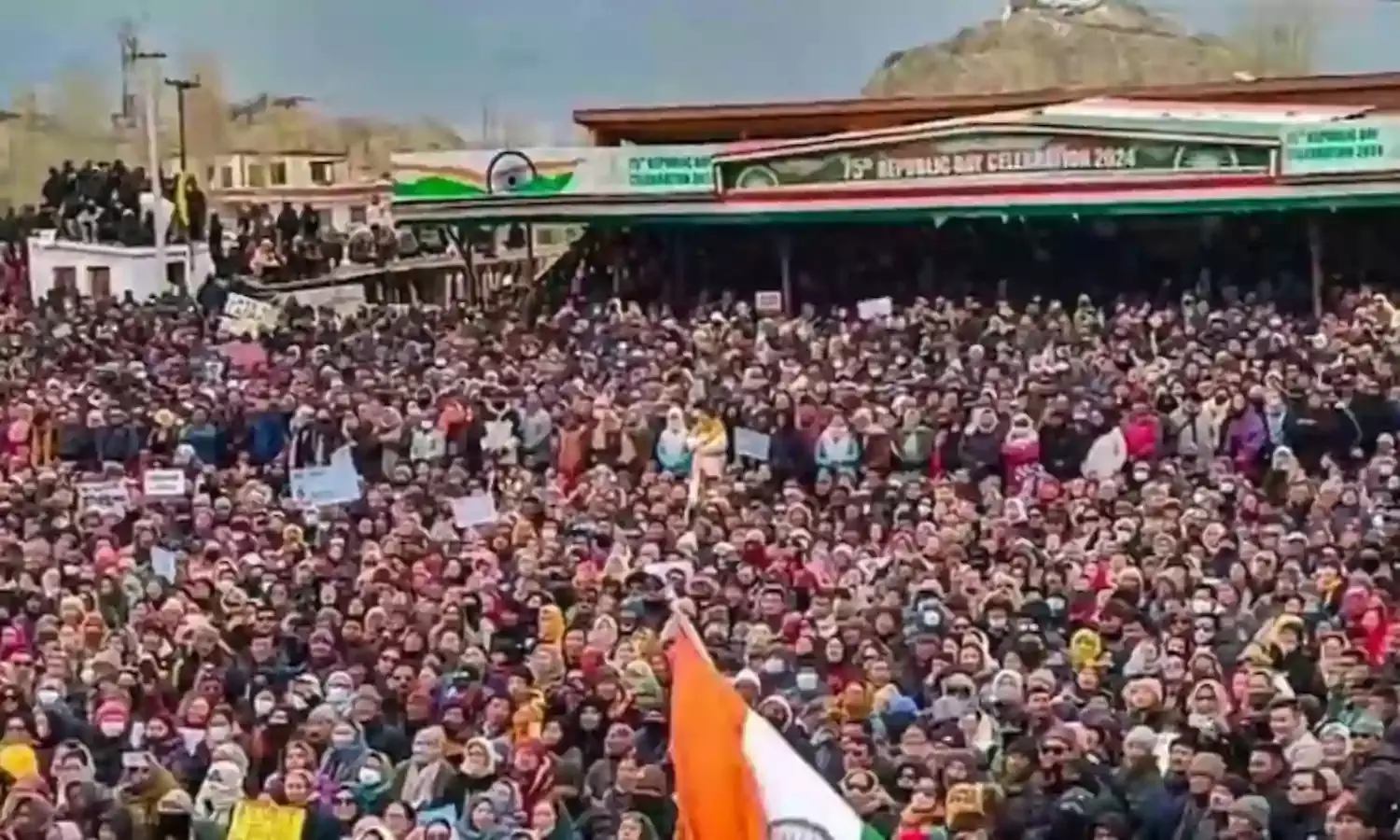Protests Continue In Ladakh
Sonam Wangchuk cancels his peace march on April 7

Despite environment activist Sonam Wangchuk cancelling his peace march on April 7, protest continues in Ladakh, demanding the Sixth Schedule among other issues. Wangchuk called off his proposed border march after the Ladakh administration imposed restrictions under Section 144 and curbed internet services in the region.
Wangchuk had called for a march to the Line of Actual Control (LAC) at Chungathung border area to highlight the scale of the alleged Chinese intrusions in Ladakh, and the land taken over by Indian corporates. Local tribal leaders were to lead the protest.
The activist, fighting for statehood and 6th Schedule for the Ladakh Union Territory, said he fears the government's "overreaction" may lead to clashes and riots. Under these circumstances, “chances of violence are very high, which could then be used to label this peaceful movement anti-national”, Wangchuk said in a social media post on Saturday.
On March 26, Wangchuk ended his 21-day hunger strike that demanded statehood for Ladakh and the protection of the Himalayan ecology. Wangchuk and other civil society leaders in Ladakh are also trying to press the Union government to implement the Sixth Schedule of the Constitution for Ladakh.
The Sixth Schedule under Article 244 (Administration of Scheduled Areas and Tribal Areas) of the Constitution guarantees certain protections for land and a nominal autonomy for citizens in designated tribal areas. In Ladakh, while more than 97% of the population belong to Scheduled Tribes, Kargil is a Muslim-majority region.
The march on Sunday to the Line of Actual Control was to “highlight the plight of the Changpa nomadic tribes who are losing thousands of square kilometres of their land due to Chinese incursion in the north and our own corporates in the south”, Wangchuk said on Saturday.
The Line of Actual Control is the de facto demarcation between Indian and Chinese-held territory in the region.
“This purpose seems already fulfilled even before the March began due to the suppression attempts and overreaction of the government with the imposition of section 144, curtailment of internet and restrictions on movement by turning Leh into a war-like zone with armed barricades on all roads leading to Leh city,” Wangchuk said.
The people of Ladakh are getting nationwide and international support for the agitation. Students of Presidency University in Kolkata also raised their voices in support of the people of Ladakh. They conducted a signature campaign under the protest banner and plan on sending it to Ladakh to share their message of solidarity with them.
“Every year, the temperature keeps beating the previous year’s record. The reason for this being the destruction of the environment and forest. Thousands of people in Ladakh are protesting. A well-known scientist, engineer and educationist from Ladakh Sonam Wangchuk was on a 21-day hunger strike. As conscious citizens, it is wrong for us to remain silent,” the students were quoted as saying.
Meanwhile, Wangchuk said that the fast that the people of Ladakh have been holding for the last 32 days will continue. On March 6, hundreds of people assembled in Leh after the latest round of talks with the interior ministry yielded no results.
Nine rounds of talks between New Delhi and leaders from Ladakh have ended in deadlock. The last meeting held on March 4 also failed. When the activist ended his fast on March 26, he had announced that the broader hunger strike would continue.
“After me, women will begin a 10-day fast tomorrow,” he had said in a social media post. “This will be followed by the youth taking up the fast and then the Buddhist monks. Then, it could be women or I could come back. This cycle will go on.”
People have been taking to the streets to protest. On February 3, thousands of residents gathered in Leh, under the leadership of the Leh Apex Body and Kargil Democratic Alliance.
Wangchuk also urged voters to “use their ballot power very carefully this time”, referring to the Lok Sabha elections. The voting in the general elections in Ladakh will be held on May 20. Counting of votes will take place on June 4.
In August 2019, Modi’s Bharatiya Janata Party (BJP) government scrapped the special status granted to Kashmir and bifurcated it into two federally administered regions – Jammu and Kashmir as well as Ladakh. But Ladakh’s leaders said they have lost political representation in the current bureaucratic setup and have little say in the development projects announced by the administration.
Meanwhile, new laws passed by the federal administration that allows outsiders to settle and start businesses in the region has also alarmed locals.
Two autonomous bodies formed in the mid-1990s and early 2000s for self-governance in Leh and Kargil have now been stripped of much of their powers. The local bodies known as the Ladakh Autonomous Hill Development Councils had a key role in decisions related to healthcare, land and other local issues in the Leh and Kargil districts.



